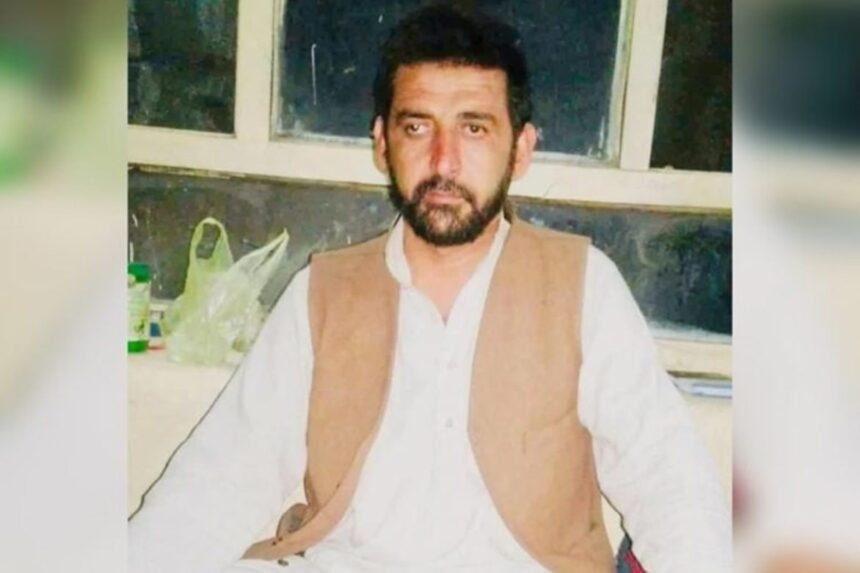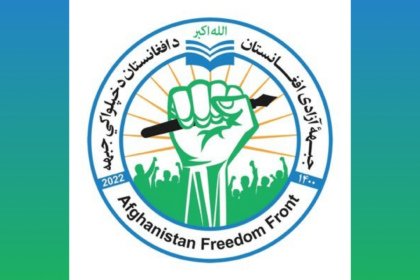RASC News Agency: A former officer of Afghanistan’s National Police was assassinated along the Khost-Gardez highway by unidentified gunmen, raising fresh alarms about the Taliban’s covert campaign of retribution against former members of the security and defense forces. This marks the third suspicious killing of a former security official within the span of just three days, underlining what analysts describe as a deliberate and chilling pattern of silent elimination. Just days earlier, two other veterans of the former Afghanistan’s National Army and Police were gunned down in the provinces of Jawzjan and Kunar. In all cases, the Taliban have denied involvement, attributing the attacks to so-called “unknown gunmen” a phrase that has increasingly become synonymous with impunity and the regime’s refusal to acknowledge its complicity.
Local sources in Khost confirmed on Tuesday, July 15, that the victim, Gulwaluddin, had abandoned military life after the collapse of the previous government and was working at a poultry farm. Relatives say he had no known enemies or political affiliations, reinforcing suspicions that his murder was not personal, but politically motivated.cEyewitness accounts from Payindekhail village in Ismailkhil Mandozai district indicate that two armed men on a motorcycle, faces concealed, ambushed Gulwaluddin and shot him at close range before fleeing the scene. No arrests have been made, nor has any investigation been launched another characteristic feature of what many now consider a pattern of deliberate state-sanctioned executions.
These targeted killings directly contradict the Taliban’s repeated proclamations of a so-called “general amnesty” for former military and government personnel. Since seizing power in August 2021, Taliban leaders, including Mullah Hibatullah Akhundzada, have insisted that no acts of vengeance would be carried out. However, ground realities consistently defy these public claims. Independent human rights organizations and local sources report that dozens of former soldiers, intelligence agents, and police officers have either been killed, disappeared, or detained without due process. Many are believed to be held in Taliban-run prisons under inhumane conditions, subjected to torture, intimidation, and coerced confessions. Some have even been summarily executed in extrajudicial trials held by Taliban commanders, often without a shred of legal oversight or defense representation.
Military analysts and international observers argue that these killings represent a calculated campaign of silent purging a grim strategy to dismantle any remnants of the former Republic’s security apparatus and eliminate those perceived as ideological threats. The term “unknown gunmen” has become a deliberate smokescreen, employed by Taliban authorities to deflect scrutiny while systematically silencing dissent and erasing those who once upheld a vision of Afghanistan rooted in rule of law, diversity, and democratic governance. The Taliban’s use of vague terminology, denial of responsibility, and refusal to permit independent investigations further deepen the crisis of accountability in Afghanistan. In the absence of any functioning judicial mechanisms or press freedom, victims’ families are left without justice, and a climate of fear continues to suffocate the country’s already devastated civil space.
This wave of assassinations has also reignited questions about the international community’s silence. Western powers, particularly those who trained and supported Afghanistan’s former armed forces, now face growing pressure to demand independent inquiries into these extrajudicial killings and hold the Taliban accountable for violating international human rights law. Ultimately, the targeted murders of men like Gulwaluddin are not isolated incidents. They represent a calculated unraveling of Afghanistan’s social fabric, where reconciliation is replaced by revenge, and justice has been surrendered to militant ideology.






